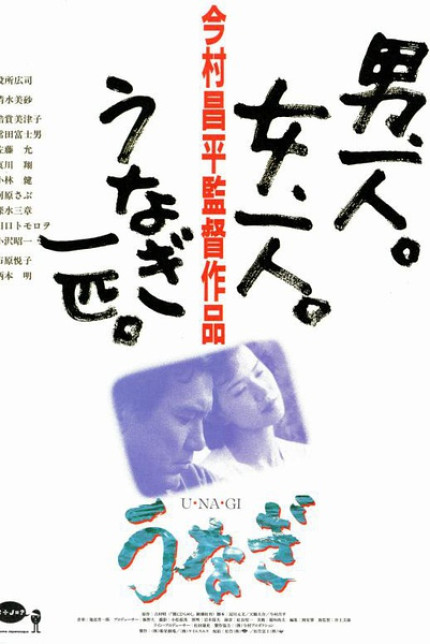**Unagi (1997) Movie Review and Plot Summary: A Tale of Redemption and Isolation**
"Unagi," also known as "The Eel," is a compelling Japanese drama directed by Shohei Imamura that explores themes of guilt, redemption, and human connection. Released in 1997, this critically acclaimed film won the Palme d'Or at the Cannes Film Festival, showcasing a deeply emotional story that lingers with viewers long after the credits roll. In this SEO-optimized article, we delve into the plot, characters, and key themes of "Unagi" to provide a comprehensive overview for movie enthusiasts and casual viewers alike.
**Plot Summary of Unagi**
The story centers on Takuro Yamashita, a white-collar worker whose life takes a tragic turn when he discovers his wife's infidelity. Overcome by rage and betrayal, Yamashita returns home unexpectedly and commits a shocking act—he kills his wife. After serving eight years in prison for his crime, he is released and seeks a quiet, isolated life in a small village. There, he opens a barber shop, a skill he learned during his time behind bars, and keeps to himself, avoiding meaningful interactions with others. His only companion is an eel he befriended in prison, a symbolic and emotional connection that reflects his inner loneliness.
Yamashita's solitary existence is disrupted when he stumbles upon Keiko, a young woman who has attempted suicide and bears an uncanny resemblance to his late wife. After rescuing her, he offers her a job at his barber shop. However, haunted by his past and fearful of emotional intimacy, Yamashita keeps Keiko at a distance, resisting any chance of closeness. As the story unfolds, the film examines whether Yamashita can confront his guilt and pain to find redemption, or if he will remain trapped in his self-imposed isolation.
**Themes and Emotional Depth in Unagi**
"Unagi" is a profound exploration of human emotions, focusing on themes of guilt, forgiveness, and the struggle to rebuild a life after tragedy. The eel, a unique and recurring motif in the film, symbolizes Yamashita's suppressed emotions and his inability to connect with others. The relationship between Yamashita and Keiko serves as a catalyst for examining whether healing is possible after such deep personal wounds. Director Shohei Imamura masterfully blends dark drama with moments of subtle humor, creating a nuanced portrayal of a man grappling with his past.
**Why Watch Unagi?**
For fans of international cinema and thought-provoking dramas, "Unagi" is a must-watch. Its slow-paced storytelling allows viewers to immerse themselves in the characters' emotional journeys, while the cultural backdrop of rural Japan adds depth to the narrative. The film's recognition at Cannes speaks to its universal appeal and artistic merit, making it a standout in Japanese filmmaking.
**Conclusion**
"Unagi" (1997) is a haunting yet hopeful film that captures the complexities of human relationships and the possibility of redemption. Through the story of Takuro Yamashita, viewers are invited to reflect on the weight of past mistakes and the courage it takes to move forward. Whether you're drawn to character-driven dramas or exploring Japanese cinema, "Unagi" offers a unique and unforgettable cinematic experience. Watch it to witness a powerful narrative of isolation, connection, and the search for inner peace.
**Keywords for SEO:** Unagi movie, Unagi 1997, The Eel movie review, Shohei Imamura films, Japanese drama movies, Palme d'Or winner 1997, Unagi plot summary, redemption movies, Japanese cinema classics.










